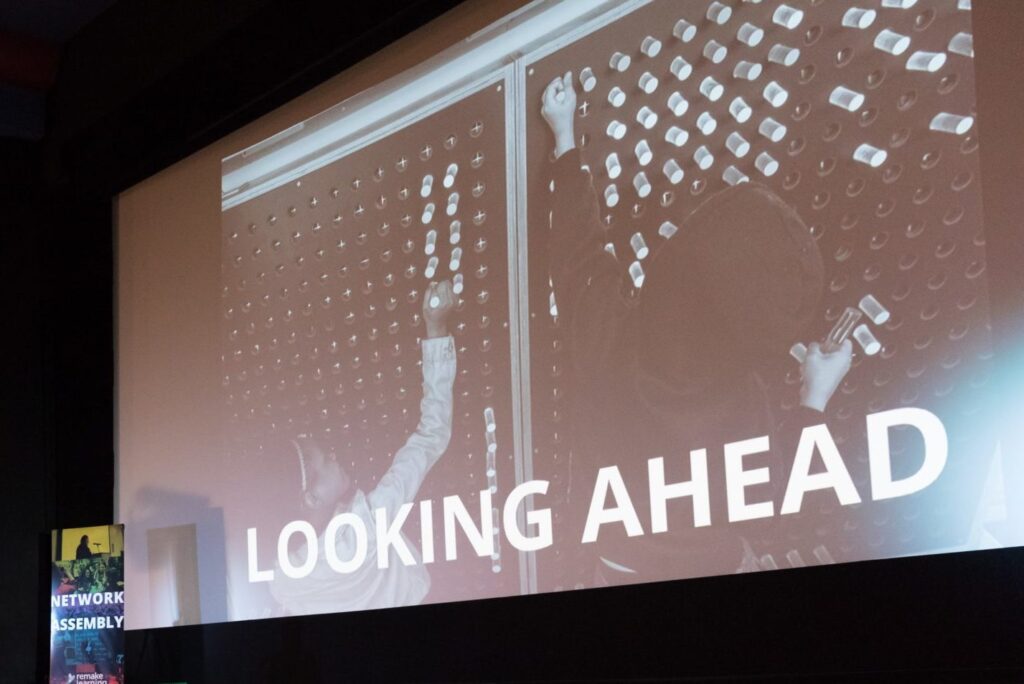In Pittsburgh, the stories of “boomeranging” have grown increasingly common—that is, the act of leaving one’s home city to be later tempted back. It is a story I know well, as I too boomeranged.
I left Pittsburgh in 2006, after graduating from the University of Pittsburgh and completing a year of service with AmeriCorps KEYS Service Corps, to start my teaching career in New York City. It was around this time that the Grable Foundation first convened an interdisciplinary group of thought leaders and field practitioners in Pittsburgh to explore how contemporary, active learning pedagogies could improve educational experiences in the region’s schools, museums, libraries, early learning centers, and out-of-school program sites. These informal meetings, often hosted around early breakfast meals, laid the foundation of what would later become the Remake Learning network.
For a decade, I had the honor of teaching students in the cities of New York and Boston, as an English Language Arts teacher, a special educator, and later, a literacy interventionist. Together, my students and I discussed symbolism in the poems of Langston Hughes, acted out scenes from Of Mice and Men, and explored how characters evolved in the short stories of Walter Dean Myers.
My students were complex, wise, caring, and funny. Moses, for instance, struggled with reading, but could fix any electronic by taking it apart, studying its insides, and making what appeared to be microscopic repairs, while Kayla, though not keen on classical literature, was infatuated with alternative rock and could string together vocabulary words into elaborate lyrical poems. These interactions with my students, each and every day, challenged my thinking on how learning could be facilitated, where schooling could occur, and how curricula could be designed. These lessons resonate in my work to this day.
In the spring of 2016, nearly ten years after I left Pittsburgh, the pull of the city grew stronger, and I boomeranged, returning to my hometown and beginning a new chapter as the Director of Instructional Innovation at the Allegheny Intermediate Unit. My first week on the job, coincidentally, occurred during a weeklong event that embodied everything that the region had become over the last decade—a thriving education ecosystem that catalyzes innovation and promotes collaboration.
I am thankful to this day that my return to Pittsburgh coincided with the very first Remake Learning Days, an event that has grown into a celebrated yearly tradition, and afforded me an opportunity in my very first days back to experience partnerships between schools, museums, universities, technology startups, and more. I recall fondly, on my third day at the job, attending the Remake Learning Days Kickoff at PNC Park, greeted by many friendly faces and meeting people who would quickly become collaborators, thought partners, and good friends.
Over the last four years, I have strived to embed the ethos of Remake Learning into all aspects of my work, values that aim to connect all the places that learners live, work, and play and activate learners’ skills in critical thinking, problem-solving, and creativity. Remake Learning has contributed immensely to shaping my own professional identity, and it is for these reasons that I am deeply humbled to join the Remake Learning team as the new network Director.
Looking ahead, there seems no better time to deeply explore the next horizon of learning than a year that has been marked by disruption, one that has challenged nearly every notion around what, when, and where learning can take place and has illuminated such profound systemic inequities that so many learners face.
In the coming years, we collectively will be faced with designing preferred futures of learning that center equity, ones that, as outlined in the recent Remaking Tomorrow publication:
- Allow for flexibility across space and time;
- Recognize many forms of success, enabling each learner to succeed regardless of race, ethnicity, or socioeconomic status;
- Provide authentic, culturally relevant, and culturally sustaining learning
experiences; - Align assessment and accountability with stated values;
- Operate in ways that put people at the center;
- And are personalized and competency-based
Such ambitions will not be possible without new and creative partnerships. As we look to reshape the education landscape in southwestern Pennsylvania and West Virginia, no one individual or organization can tackle this alone. Instead, designing an engaging, relevant, and equitable future of learning will require the collective efforts of educators, designers, technologists, researchers, artists, entrepreneurs, community members, and most importantly, youth.
To that end, as it has for nearly 15 years, the network will build upon its core practices, such as convening and storytelling. Working and exploratory groups will provide ongoing opportunities for cross-sector exploration and co-design around emerging themes, and catalytic grantmaking will provide schools and organizations with funding to take bold risks to reimagine learning in their communities and bring ideas to life. And in the near future, celebrations and social events will once again provide network members valuable opportunities to connect regularly with like-minded peers, providing space to share nascent ideas and celebrate successes.
I am hopeful for the years ahead, and during this time of expansion, please join us, follow along, and invite others into this work. Thank you for being a part of Remake Learning, and I look forward to collaborating soon.
With gratitude,
Tyler
Authored by: Tyler Samstag
